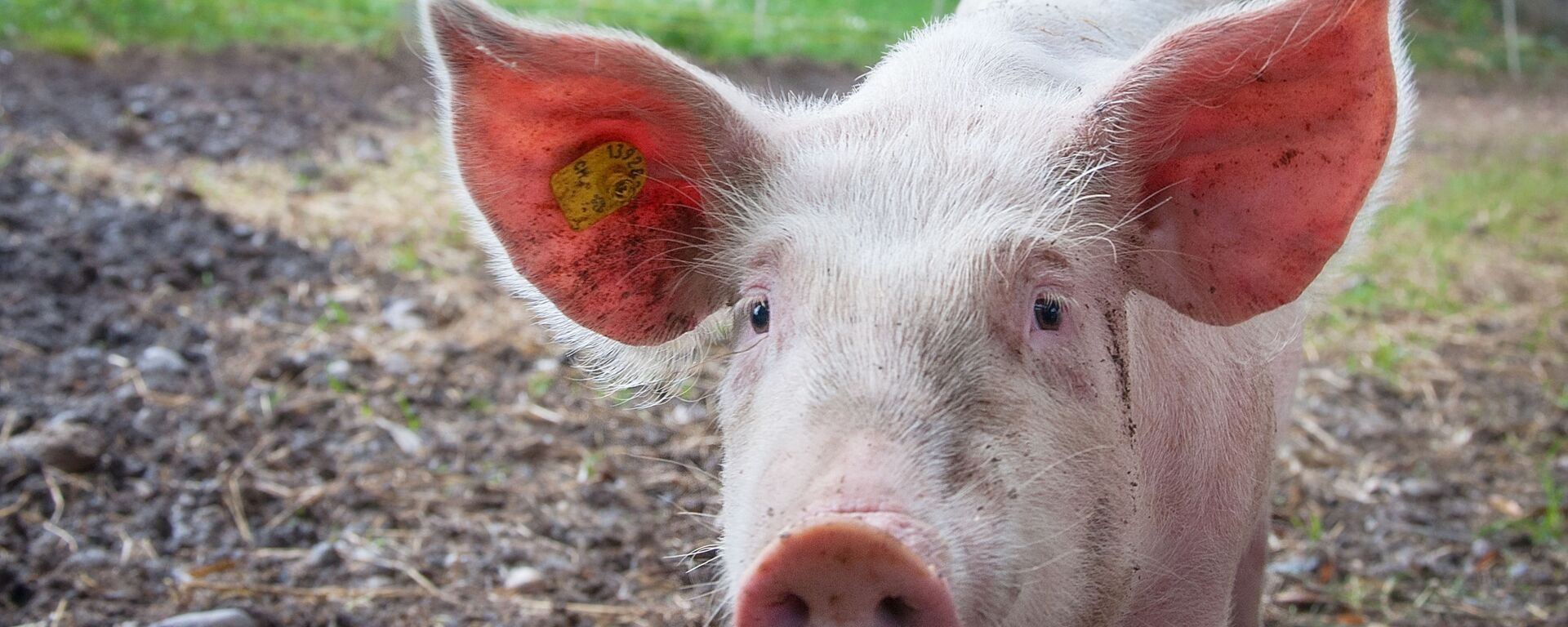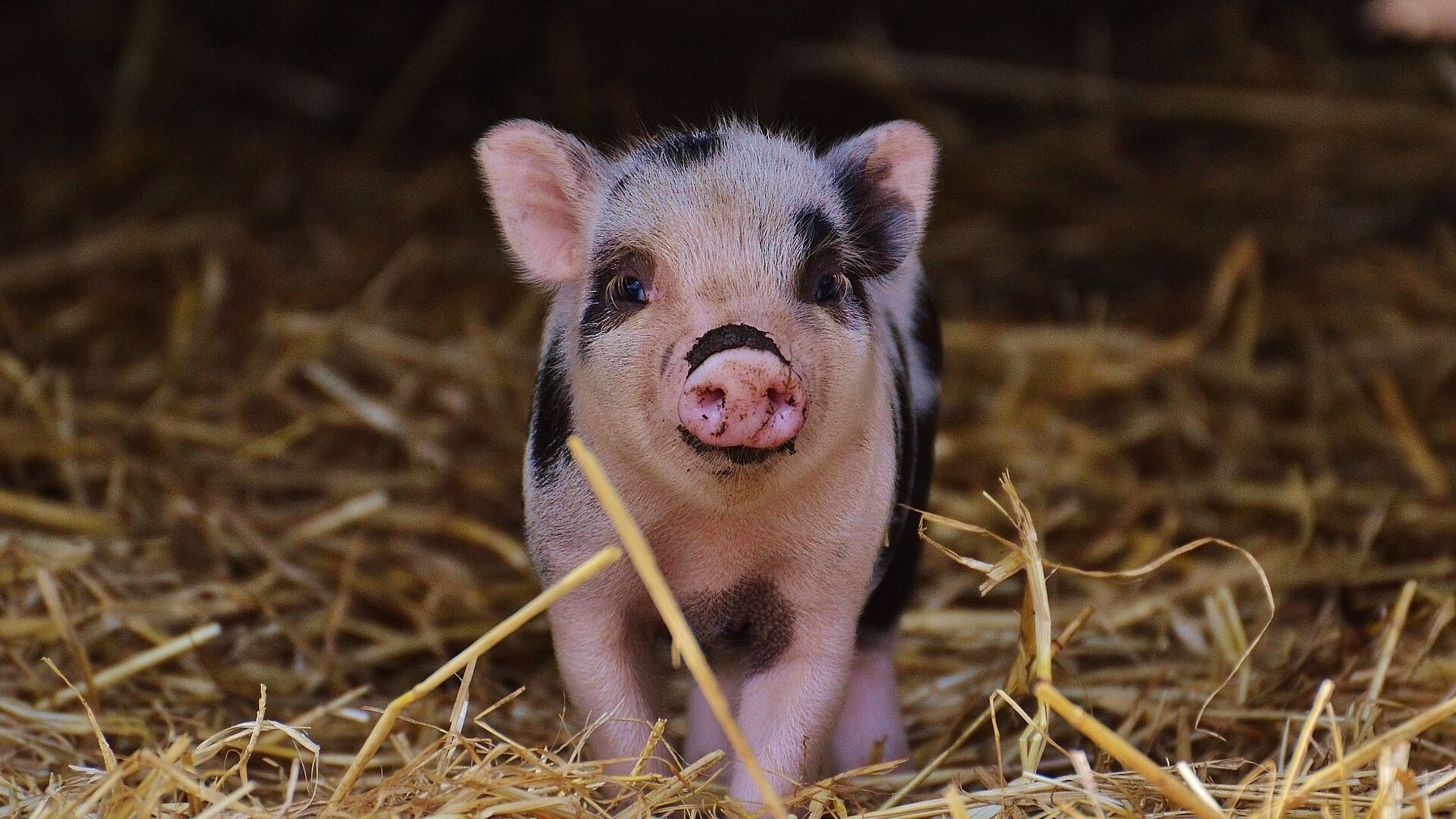https://sputnikglobe.com/20220204/german-scientists-aim-to-breed-genetically-modified-pig-to-serve-as-heart-donors-for-humans-1092758105.html
German Scientists Aim to Breed Genetically Modified Pig to Serve as Heart Donors for Humans
German Scientists Aim to Breed Genetically Modified Pig to Serve as Heart Donors for Humans
Sputnik International
The scientists intend to have the first generation of the pigs ready this year and to test their hearts on baboons before eventually seeking human clinical... 04.02.2022, Sputnik International
2022-02-04T17:41+0000
2022-02-04T17:41+0000
2022-02-04T17:43+0000
science & tech
pig
heart
organ transplantation
donor
cloning
https://cdn1.img.sputnikglobe.com/img/07e4/09/08/1080398802_0:99:1921:1179_1920x0_80_0_0_30cc9a80b38521591657344f5e3d814a.jpg
Scientists in Germany seek to clone and breed genetically modified pigs to potentially transplant their hearts into humans.According to Reuters, a scientist at Ludwig-Maximilians University (LMU) in Munich named Eckhard Wolf said that his team plans to have the new species, “modified from the Auckland Island breed,” ready for transplant trials by 2025.As Wolf has explained, the team intends to create the “founder animals” via cloning technology and then use these creatures to breed genetically identical generations of pigs.The first generation is expected to be produced this year and their hearts are going to be tested on baboons first – if all goes well, the scientists will ask for approval for human clinical trials, he added.This development comes after surgeons in Maryland performed a first-of-its-kind successful operation last month by transplanting a heart from a genetically modified pig (with 10 modifications) to a terminally ill man.Also in January, surgeons in Alabama successfully transplanted a pig’s kidneys into the body of a brain-dead man, in a possible rehearsal for a surgery that may eventually be performed on living patients.While the scientist argued that using animals as organ donors could help shorten the list of people waiting for transplants, this approach also has its opponents.“Animals should not serve as spare parts for humans," said Kristina Berchtold, a spokesperson for the Munich branch of Germany's Animal Welfare Association. “A pet, a so-called farm animal, a clone or a naturally born animal all have the same needs, fears and also rights."And in 2019, a petition by a German pressure group Doctors Against Animal Experiments calling for a ban on xenotransplantation research (I.e. research on animal-to-human transplants) accrued over 57,000 signatures, Reuters points out.
https://sputnikglobe.com/20220120/pig-kidneys-successfully-transplanted-into-brain-dead-human-body-1092403290.html
Sputnik International
feedback@sputniknews.com
+74956456601
MIA „Rosiya Segodnya“
2022
News
en_EN
Sputnik International
feedback@sputniknews.com
+74956456601
MIA „Rosiya Segodnya“
Sputnik International
feedback@sputniknews.com
+74956456601
MIA „Rosiya Segodnya“
science & tech, pig, heart, organ transplantation, donor, cloning
science & tech, pig, heart, organ transplantation, donor, cloning
German Scientists Aim to Breed Genetically Modified Pig to Serve as Heart Donors for Humans
17:41 GMT 04.02.2022 (Updated: 17:43 GMT 04.02.2022) The scientists intend to have the first generation of the pigs ready this year and to test their hearts on baboons before eventually seeking human clinical trials.
Scientists in Germany seek to clone and breed genetically modified pigs to potentially
transplant their hearts into humans.
According to Reuters, a scientist at Ludwig-Maximilians University (LMU) in Munich named Eckhard Wolf said that his team plans to have the new species, “modified from the Auckland Island breed,” ready for transplant trials by 2025.
As Wolf has explained, the team intends to create the “founder animals” via cloning technology and then use these creatures to breed genetically identical generations of pigs.
The first generation is expected to be produced this year and their hearts are going to be tested on baboons first – if all goes well, the scientists will ask for approval for human clinical trials, he added.
This development comes after surgeons in Maryland performed a first-of-its-kind successful operation last month by transplanting a heart from a genetically modified pig (with 10 modifications) to a terminally ill man.
"Our concept is to proceed with a simpler model, namely with five genetic modifications," Wolf remarked.

20 January 2022, 17:13 GMT
Also in January, surgeons in Alabama
successfully transplanted a pig’s kidneys into the body of a brain-dead man, in a possible rehearsal for a surgery that may eventually be performed on living patients.
While the scientist argued that using animals as organ donors could help shorten the list of people waiting for transplants, this approach also has its opponents.
“Animals should not serve as spare parts for humans," said Kristina Berchtold, a spokesperson for the Munich branch of Germany's Animal Welfare Association. “A pet, a so-called farm animal, a clone or a naturally born animal all have the same needs, fears and also rights."
And in 2019, a petition by a German pressure group Doctors Against Animal Experiments calling for a ban on xenotransplantation research (I.e. research on animal-to-human transplants) accrued over 57,000 signatures, Reuters points out.




